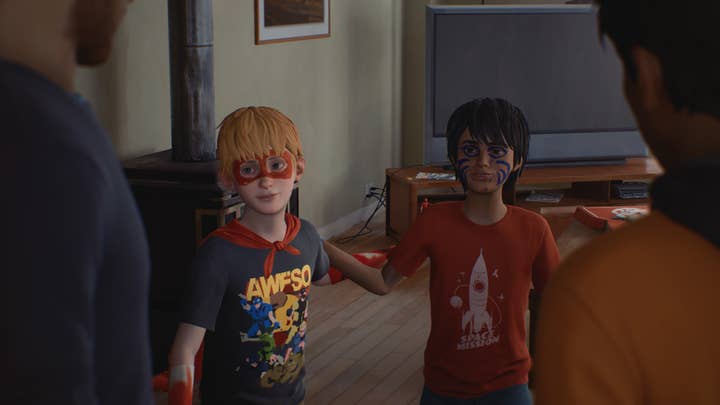Dontnod to embrace self-publishing for multiple future titles
CEO Oskar Guilbert says the studio wants to be "as independent as possible" going forward
Life is Strange studio Dontnod is ready to embrace self-publishing, starting with upcoming narrative title Twin Mirror.
The game, co-produced with Shibuya Productions, launches in December and will be Dontnod's first self-published title. And, to hear CEO Oskar Guilbert tell it, it certainly won't be the last.
Speaking to GamesIndustry.biz, Guilbert says that while the company's partnerships with Square Enix and Microsoft went well, the studio has previously had struggles with other publishers rejecting their games due to the fact that they frequently depict more diverse casts of characters. This happened in 2013 with Remember Me, and while Guilbert didn't name specific incidents since, Dontnod has since become known for its positive depictions of protagonists of color, queer individuals, and most recently a transgender main character in Tell Me Why.
So now, Guilbert says Dontnod wants to be "as independent as possible," and has formed publishing and marketing teams explicitly for that purpose. The studio currently has multiple games in its pipeline -- one a co-production with Focus Home Interactive, and another Guilbert says is being developed with the support of a major publisher. But Dontnod still has at least four more titles in development that he expects will all be self-published.
Guilbert can't say more for now on what those announced titles will be, and he doesn't say one way or another whether there will ever be a Life is Strange 3.
"For us, it's not about Life is Strange or Tell Me Why or Vampyr or Remember Me, even if we are very proud of all those games," he says. "What is important for us is the Dontnod brand. That's what we want to push in the future."
That said, the studio isn't giving up on the episodic format for its games, though it's recently been playing with expectations a bit. While both Life is Strange games released new episodes months apart, Tell Me Why took place over three episodes released two weeks apart, and Twin Mirror isn't an episodic game at all.
Guilbert says future decisions will be based on what makes the most sense for the game they want to release, though he acknowledges there are developmental and marketing advantages to splitting games into episodes.
"We obviously would not give up the episodic format," he says. "We will probably reuse it in the future. It's also very good for the presence of our games on the stores, because each new episode brings new visibility. It's like you have a game release five times instead of once."
"From Life is Strange to Tell Me Why, we needed to optimize how we developed the episodes. We don't have to wait [with Tell Me Why] to finish one episode to start to work on the other one, or we can work on three episodes at the same time and release them all in one. But what is also important is to receive feedback from players, feedback that can be integrated in the following episodes. Obviously if you have everything finished, it's not possible. So it's all about balance and what we feel is best for what we want to do and the story we want to tell."
Alongside Dontnod's publishing and IP growth, the company also recently opened a new studio in Montreal with the aim of being closer to the real-world locations of its games taking place in North America as well as taking advantage of the Montreal development scene.
Guilbert says that while the company has recently seen considerable growth, we shouldn't expect a sudden rash of new Dontnod studios popping up. Instead, Dontnod hopes to continue to grow slowly and steadily according to a formula it already has in place.
"It's important to grow, but still preserving a human scale for each project," he explains. "So we don't want to do projects with 800 or 1,000 people working on one project. What's important for us is to give a framework to the core team, which is five or six people which all start a project -- a game director, a script writer, a technical director, producer, art director working together trying to set up a new project. From this team, it grows, maybe goes to 70 to 80 people depending on the project, maybe a little more for really big ones.
"And what is important is to give independence to this team and be really careful about the fact that they are free. They can innovate, they can create what they really want with these boundaries. That's something that's very important to us, because this creates innovation, a story that is really original, really different from other games, especially in our genre."

